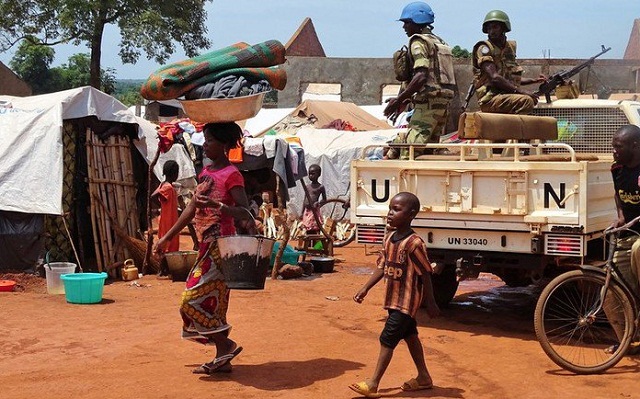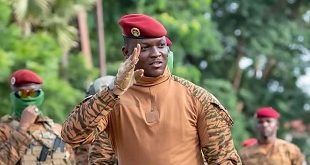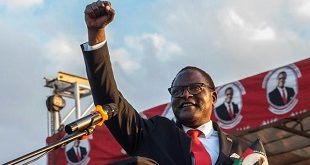
– ‘Beautiful game’ turns ugly –
On January 17, a group of youths loyal to Force played a team of youngsters linked to “Tola”, another local figure who runs a coalition of armed shopkeepers.
Tempers frayed and someone detonated a grenade, injuring many people who were taken to hospital. Both sides blamed the other.
Furious, Force’s men stormed into a shop owned by Tola’s brother, doused it with petrol then hurled a couple of grenades inside, sparking a huge blaze which gutted the store and others located in the same building.
As the fire raged, other traders could only look on helplessly, kept away from the blaze by the gun-toting arsonists.
“They fired into the ground to make us stay back,” said Abdul, who watched his entire stock of wax-print fabrics go up in smoke — a loss of close to 50,000 euros ($62,000).
Nearly four dozen shops and their stock were reduced to ashes, a loss of more than 2.5 million euros, says Yahya who is heading the group representing the victims.
It was just one more blow to traders working in this bustling commercial neighbourhood, which has been ravaged by bloodshed and violence.
In December, seven people died during clashes between armed groups in PK5, a neighbourhood which has often been at the heart of tensions in the city.
And a month earlier, a grenade attack on a cafe near PK5 left seven dead and more than 20 wounded.
– ‘They electrocute you’ –
Back on the streets, the traders know they are likely to pay a price for their stand.
“If you defy their orders, they tie your hands and give you an electric shock. And if you block the road (in a protest), they make you drink the canal water,” explained Abdul, referring to the ditch of sewage and wastewater that runs out of the neighbourhood.
They have also filed around 20 complaints against such groups, of which there are around 15 in total, demanding that the state and MINUSCA act to break them up.
Should the authorities or the UN peacekeepers ever decide to intervene, there would be plenty for them to do. But if they do not, Yahya insists he will not back down.
“If MINUSCA doesn’t do it, we will,” he shrugs. And this is no idle threat in a neighbourhood where most people have weapons.
“Being afraid doesn’t help anything,” he says. “What more can we lose on top of everything else that we’ve already lost?”
 The Independent Uganda: You get the Truth we Pay the Price
The Independent Uganda: You get the Truth we Pay the Price



